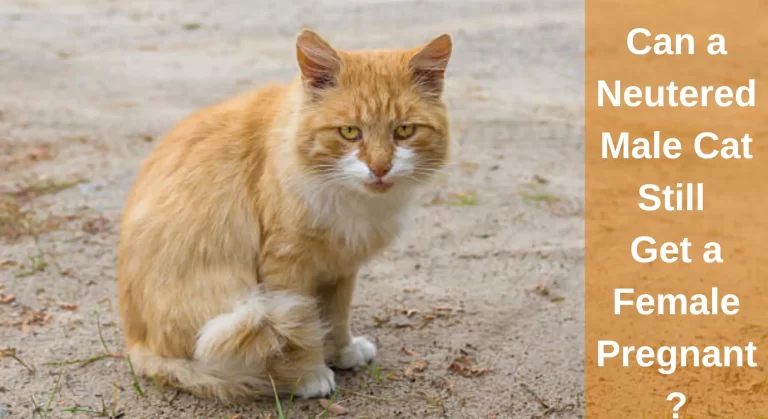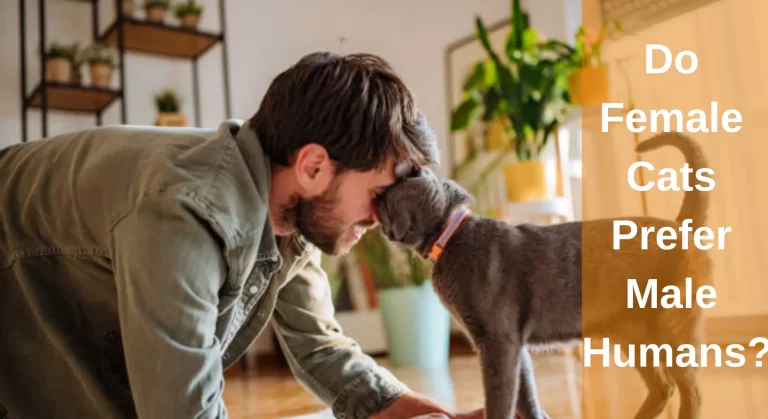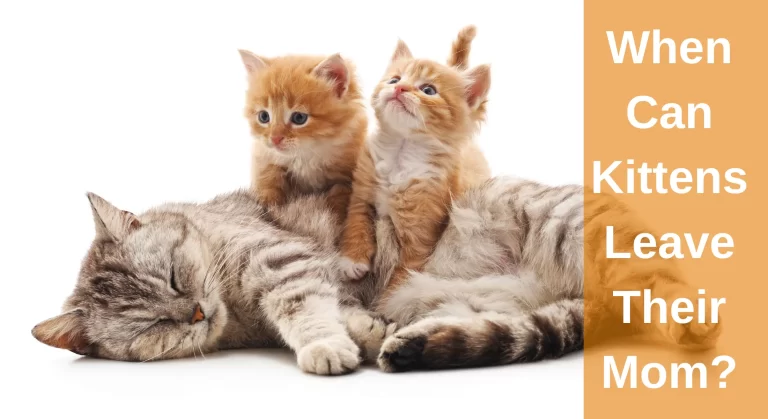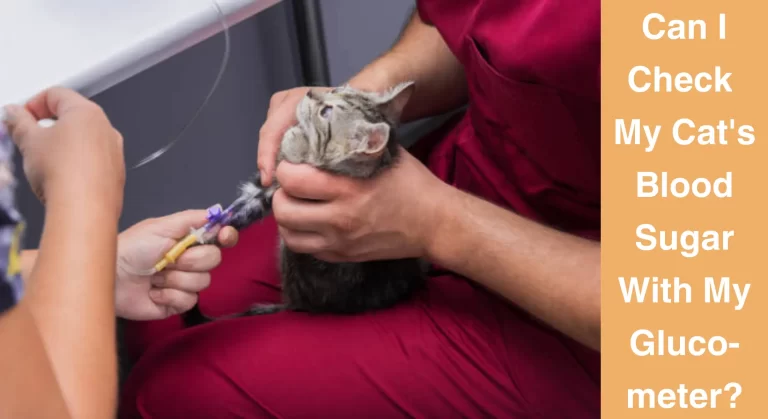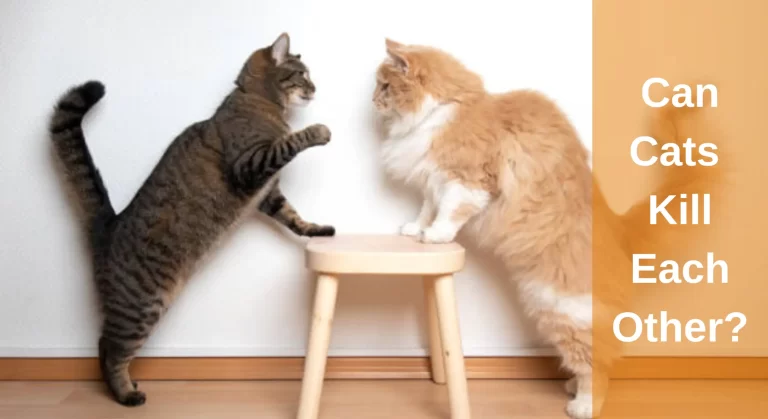Why Do People Hate Cats? All You Need To Know!
Humans have held a long-standing hatred towards cats. Ailurophiles are those who have a strong affinity for cats. On the other side, Ailurophobia is the dread or hatred of cats, and those who suffer from it are classified as ailurophobes. The internet is brimming with content today, showing people’s love for cats and humorous situations with this adorable feline friend. Nevertheless, given that the animal has long been associated with stereotypes of cruelty and wickedness, which have caused generations of people to despise cats, this transformation is very recent. Why Do People Hate Cats?
People’s aversion to cats can stem from a variety of factors. These may include historical superstitions and negative associations, misunderstandings of cat behavior, allergies, health concerns, past negative experiences, and personal preferences. Cultural influences, fear, and the perpetuation of stereotypes can also contribute to why some individuals dislike cats. It’s important to recognize that people’s feelings towards cats can vary greatly, and there’s no single, universal reason for this aversion.
Numerous dog and cat owners have been observed to have extremely varied perspectives on taming their pets. While there are some situations where someone’s hatred of cats is completely understandable, other times, people have no good cause to despise any feline. Let’s dispel some myths regarding cat hatred and learn the real facts.

Why Do Some People Hate Cats?
Many people reserve their dislike for cat species. Such a person often responds fearfully or angrily to specific circumstances or features of the cat. Some of them dislike the presence of wild cats. Let’s examine these unique causes of cat hatred and the cat breeds that are most likely to cause it.
There appear to be several reasons why some people dislike cats. People frequently get allergies from cats, which might make them repellent to certain breeds of felines.
The symptoms of cat allergies that affect many individuals are well supported and explained by research. A cat’s body releases protective proteins onto its fuzzy coat, causing moderate to severe allergic reactions. Sneezing, coughing, rashes, swelling, watery eyes, nose redness, and throat souring are among the common symptoms.
In addition to causing allergic responses, some of these wild cats are just too violent for people to handle. Cat breeds, including the Siamese, Bombay, sphynx, Savannah, Cymric, Korat, and pixie bobcats, are difficult to tame and hence more likely to be disliked by people.
It may be exceedingly challenging for owners to control and train these breeds, so it seems sensible that those who have never had a cat before might find their behavior unpleasant.
Generalizing all cats based on negative experiences can be unfair, as many cats are affectionate and make wonderful companions. It’s always best to consider the specific cat and its characteristics rather than making broad assumptions about the entire species.
Also, Check Out: Why Am I Allergic To Cats But Not Dogs?
Reasons Why Don’t People Like Cats
Your cat-hating buddies may not be completely won over, but at least you can counter their remarks with some logical reasoning. The following are the top causes of why people hate cats.
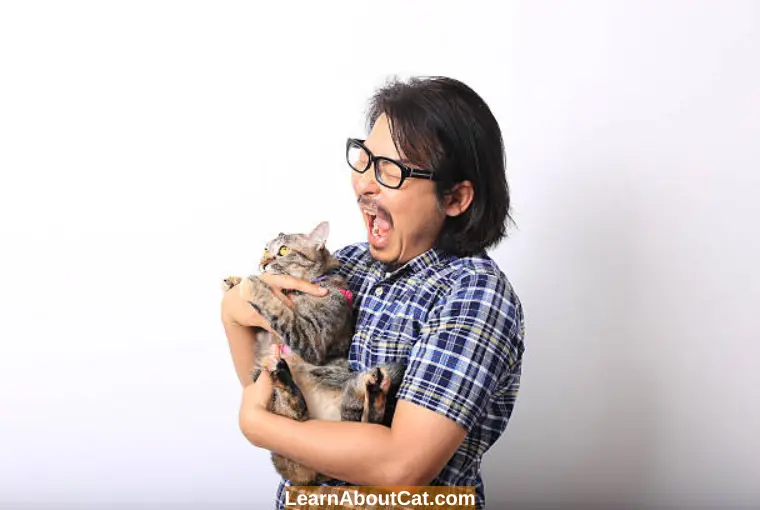
1. Cats are Seen as Aloof
One of the most common criticisms of cats is that they are aloof and unaffectionate. While some cats may not show the same level of enthusiasm as dogs, this doesn’t mean they don’t love their owners.
However, their independent nature can sometimes be misinterpreted as disinterest or even hostility.
2. They’re Perceived as Disloyal
In addition to being seen as unaffectionate, cats are often perceived as disloyal. Because they’re independent creatures, they don’t rely on their owners for companionship in the same way that dogs do.
This can lead some people to feel like their cats are indifferent to them, or worse, actively plotting against them.
3. Allergies
I understand that some individuals have allergies to cats. I would want anything removed from my home if it was regularly causing me to sneeze or making it difficult for me to breathe.
Having said that, just because you are unable to possess a cat does not indicate that you must despise the entire species.
4. Training
Another common criticism of cats is that they are untrainable. While it’s true that cats can be more challenging to train than dogs, this doesn’t mean they can’t be taught. Some people may simply lack the patience or knowledge to train a cat effectively.
The fact is dogs must be trained to perform these acts. On the other side, you don’t need to teach a cat to use a litter box or perform its own cleaning.
Find Out: Do Cats Understand Words?
5. Cats are Violent
Cats have diverse personalities, just as people do. Some people are cruel and unsocial. Others are affable and kind. However, even the most hostile cats may grow fond of you with time.
You must work hard to win a cat’s attention, but once you do, you’ll feel unique. Cats are often picky about whom they exhibit affection.
Check Out: Why Are Cats Not As Friendly As Dogs?
6. Cats Kill Birds
Like all other animals, cats must occasionally hunt to survive, which is why they kill birds. They were tamed thousands of years ago, yet some of their hunting instincts remain. This does not imply that they are ruthless killers.
While this behavior is completely normal for cats, it can be upsetting to people who love birds or have a backyard garden. In some cases, people even view cats as pests themselves, particularly if they’re strays or feral.
7. They’re Seen as Destructive
Cats are natural scratchers, and their claws can do significant damage to furniture and other household items.
Additionally, some cats may be prone to knocking things over or getting into mischief. For some people, this behavior can be frustrating or even costly.
8. Past Experiences with Cats
I can see why you could loathe something that previously came dangerously close to taking your eye out. You may hate that one cat all you want but don’t hate all cats because one of them was rude to you once.
You will be an extremely lonely person if you approach others with this thinking. Your cat is only trying to take care of you if it puts a dead crow in your doorway.
9. They’re Associated with Bad Luck
The cat has a bad reputation in some cultures. In ancient Egypt, for example, killing a cat was punishable by death.
Black cats, in particular, are believed to bring misfortune if they cross your path.
These superstitions may have led some people to view cats as dangerous or undesirable pets. While these beliefs are largely unfounded, they persist in popular culture today.
10. Negative Media Portrayals of Cats
Media portrayals of cats as evil or mischievous may contribute to negative attitudes towards them.
For example, in many horror movies, cats are associated with witches or demons, leading to an association of cats with negative connotations.
11. Cultural Differences
In some cultures, cats are viewed as pests or vermin, rather than as household pets. For example, in some parts of Asia, cats are seen as carriers of disease and are often shunned or even killed.
This cultural difference can lead to a negative attitude towards cats in those who come from these backgrounds.
Interesting Reading: Cat Myths And Misconceptions: Know The Truth
What Are the Signs That People Hate Cats?
Cat haters may be identified rather readily by the way they behave around cats. While some individuals may just feel uneasy around cats, others may even decide to leave the area if they see a cute, harmless kitten. Let’s find out the typical characteristics of cat haters.
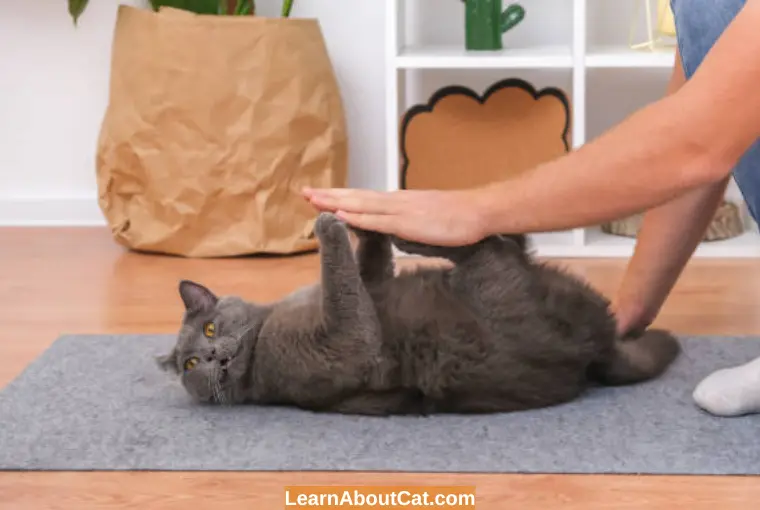
Characteristics of cat haters:
- Cat haters may be unaware of a cat’s inherent nature. They tend to be reclusive, seldom sociable, and perhaps hostile when overly petted.
- If you find someone avoiding a spot where they can sniff cat food or avoiding resting in a place where there is cat fur, it is a clear indication that they cannot even bear being near cats.
- When a person is attempting to find calm and can continually hear meowing coming from their neighbors’ homes, they can’t help but yell at them and beg them to treat their domestic cat pets with attention.
- Additionally, there are other irrational religious convictions or strong familial feelings that might be clear indicators of cat haters.
Why Do Cats Like People Who Hate Them?
Cats have a stronger affection for individuals who are passive around them. Humans frequently find it difficult to comprehend a cat’s behavior. Continue reading to see why cats love to hang out near people who would rather ignore them.
Cats are independent creatures who want to be left alone so they may explore and come home whenever they please.
This appears to be the main justification for why a cat would prefer a guy who is passive around cats versus a bothersome cat lover.
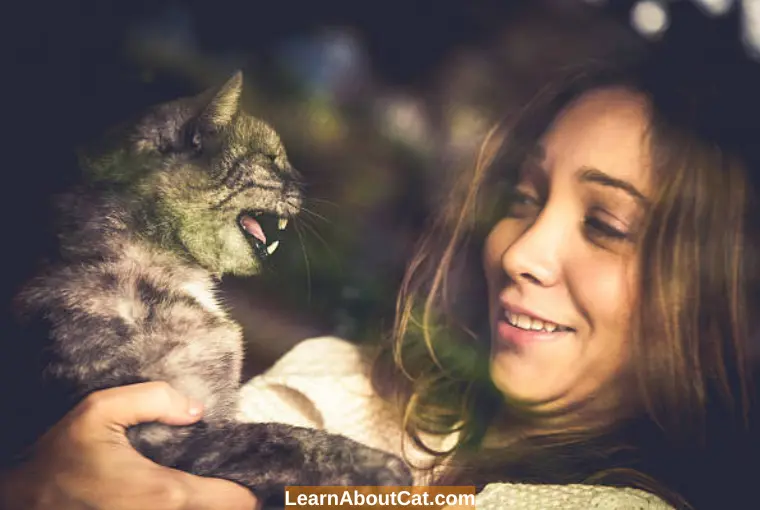
According to a study on animal behavior, children and adults who own cats as pets or who self-identify as cat lovers appear to have a stronger inclination to fuss over and annoy the cat than individuals who dislike cats.
As a result, cats like to have greater freedom and control of their territory when there are no interruptions from people. Cats, however, may not always remain in the vicinity of humans who despise them and employ violence or other deterrent tactics to keep them away.
More and more individuals these days are becoming cat-obsessed. The addiction is extremely genuine and very obvious on social media platforms where users post videos and images of their adorable, humorous, and attractive cats. In addition, there are many cat-focused social media accounts.
Even though some individuals grow to despise them, many others are astounded by their odd appearance and behavior.
Although it won’t hurt healthy individuals, it can affect a person or animal and change their behavior by making them less fearful of predators. In that regard, having a cat attachment is often the outcome of an infection.
Find Out Reading: Why Is My Cat Sitting Like a Human?
How are Domestic Cats Different from Wild Cats?
Although all cats are born predators, it’s crucial to understand the differences between a domestic cat’s demands and hunting instincts vs those of a wild cat.
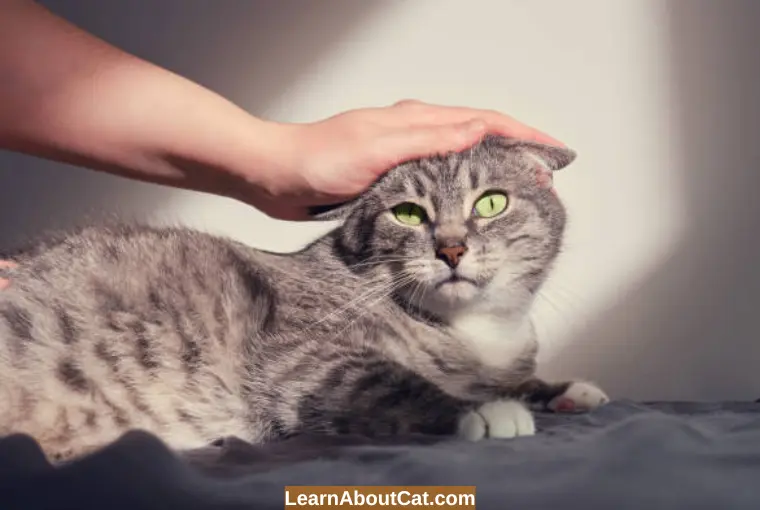
Cats who are born and kept as pets typically lack hunting skills and will typically fail even if they venture out in search of prey. Some of these felines can still hunt and retain their strong predatory instincts.
However, some cat owners can typically see this as part of their pet’s natural behavior, and they may even respect the work a cat does to rid the house and surroundings of rodents and tiny pests.
Any other individual may grow to loathe cats if they frequently bring in or bring dead prey into the house.
Frequently Asked Questions
Why do people hate certain types of cats?
Some people don’t like cats since they may be moody and aloof with their human companions. A cat will hiss or swipe at them to let them know they’ve made them feel uneasy or scared. Cats may appear unappreciative compared to obedient and joyous canines.
Are cats really unhygienic?
No, cats are very clean animals that groom themselves regularly. However, it’s important to keep their litter boxes clean to maintain their hygiene.
Can cats be trained like dogs?
The answer is Yes, cats can be trained, but their training approach differs from that of dogs. The most effective way to train cats is to use positive reinforcement and consistency.
Can cats transmit diseases to humans?
While cats can transmit diseases such as Cat Scratch Disease, the risk is relatively low and can be minimized through proper hygiene and handling techniques.
What percentage of people hate cats?
There isn’t an exact percentage of people who hate cats, as it can vary depending on the region and culture. However, studies have shown that dogs tend to be more popular pets than cats in many parts of the world.
Why do people like dogs more than cats?
Dogs are preferred over cats for a number of reasons. Dogs are generally more social, loyal, trainable, and affectionate, which can make them more appealing as pets for some people. Dogs can also be used for a variety of purposes, such as hunting, herding, and assisting people with disabilities.
However, it’s important to note that cats can be just as loving and affectionate as dogs, and can make great companions.
Do dogs dislike cats?
It’s believed that dogs dislike cats just as much as people. This is a total myth, though. A dog may begin chasing and moving things out of the blue as a natural reaction. Like cats, dogs’ predecessors lived in the wild as predators.
As a result, when a dog spots a moving cat, its innate hunting instincts kick in, and they begin chasing the cat. Dogs genuinely like pursuing cats; they don’t do it intentionally or out of hatred.
What kind of people like cats?
People of all ages and backgrounds can enjoy the company of cats. However, some studies suggest that cat owners may be more introverted and have higher levels of creativity, open-mindedness, and intelligence compared to dog owners.
Additionally, cat people may be more likely to work in artistic or intellectual fields.
How can I learn to love cats?
The best way to learn to love cats is to spend time around them and get to know their unique personalities. With patience and understanding, you may come to appreciate these furry creatures as much as their devoted fans do.
Closing Words!
Like other animals, cats have distinct personalities and innate behaviors. Some people may be afraid of them or have allergies, while others may have misconceptions about their behavior and trainability or because they had unpleasant cat interactions when they were young.
Cultural depictions of cats as evil or aloof may also contribute to negative feelings towards them. However, it’s important to remember that cats are unique individuals with their own personalities, and some may be more friendly and affectionate than others.
After reading this interesting article, I hope you’ve got a lot of information regarding those people who hate your cat. Share it with your friends and family so that they’ll also know why people hate cats.
Who is Isabella?
My name is Isabella, and I am a dedicated and knowledgeable cat enthusiast. With years of experience caring for cats and a deep love for felines, I made a mission to help other cat lovers navigate the challenges of cat ownership.

